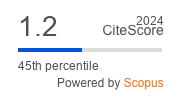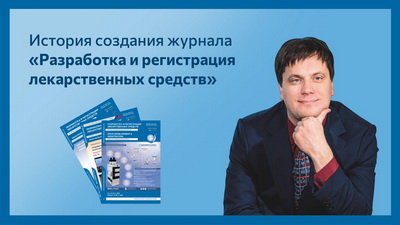Comparative Analysis of Perspective Extragation Methods for Receiving Extractions from Fenugreek Seeds
https://doi.org/10.33380/2305-2066-2019-8-3-49-55
Abstract
Introduction. Today, innovative technologies are widely used in pharmacology (in particular, in the production of herbal preparations), in cosmetology (obtaining various extracts and oils, complex preparations), as well as in the food industry (as natural dyes, etc.). Plant extracts with a high level of risk do not have a harmful effect on the human body, except that they provide environmental safety, which creates a special interest for the pharmaceutical industry . vibrocavitation and supercritical fluid СО2 extraction.
Aim. The choice of the optimal level of extraction to obtain a high level of fenugreek seeds.
Materials and methods. Obtaining a vibrocavitation extract with an experimental vibration-explosive installation made at the Department of Processes and Apparatus of the St. Petersburg State Technology Institute. Extracts at a temperature of 60±2 ºС. The frequency of revolutions of the homogenizer ranged from 1000 to 5000 rpm. Ultrasonic impact using ultrasound unit I100-6/4 Ultrasonic effect on solid plant material with an intensity of 22 kHz for 60 minutes. The time of extraction in a vibro-cavitation extractor-homogenizer was studied for optimal values.
Supercritical fluid СО2-extraction is obtained in two versions with the use of extragent (96% ethanol in the presence of carbon dioxide: ethanol 9:1) and without it. Extraction of the sound of a supercritical fluid extraction system with a 1-liter vessel. SFE1000-2-BASE with a kit for upgrading the SFE1000-2-BASE system to an SFE1000M1-2-FMC50 system (Waters, USA). The flow rate of the extractant was 60 g/min. Emergency listening for one hour and pressure 200, 300 and 400 bar. Extraction is observed three times. The obtained extracts indicate the amount of extractive substances according to article of Russian state pharmacopoeia 1.5.3.0006.15 «Determination of the content of extractive substances in plant raw materials and medicinal plant preparations». Quantitative determination of the saponin complex of parasitic seed seeds on an Agilent QTOF-6530 chromatograph with two ESI and APCI ionization sources according to Gravel et al.
Results and discussion. Studies have allowed to determine the amount of extractives in the seeds and choose the most promising method.
Conclusion. As a result of our research, it was found that the most promising extraction method for extracting seeds is a parasitic with vibration extraction at frequent revolutions of the homogenizer of 5000 rpm and an extraction time of 60 minutes.
About the Authors
S. S. BelokurovRussian Federation
14А, Prof. Popov str., Saint-Petersbourg, 197376
E. V. Flisyuk
Russian Federation
14А, Prof. Popov str., Saint-Petersbourg, 197376
I. A. Narkevich
Russian Federation
14А, Prof. Popov str., Saint-Petersbourg, 197376
V. G. Luzhanin
Russian Federation
14А, Prof. Popov str., Saint-Petersbourg, 197376
S. V. Shilov
Russian Federation
98, Socialisticheskaya str., Biysk, Altai Territory, 659315
K. O. Novikova
Russian Federation
14А, Prof. Popov str., Saint-Petersbourg, 197376
References
1. Belokurov S. S., Flisyuk E. V. Comparative analysis of various methods for obtaining extracts with a high content of biologically active substances. VIII All-Russian Scientific Conference of Students and Postgraduates with International Participation «Young Pharmacy – Potential of the Future», St. Petersburg, April 23–24, 2018 – St. Petersburg: SPCPU Publishing House. 2018: 383–384 (in Russ.).
2. Abdo M. S., Al-Kafawi A. A. Experimental studies on the effect of Trigonella foenum-graecum. Planta Med. 1969; 17: 14–18.
3. Grover J. K. Medicinal plants of India with anti-diabetic potential. Journal of Ethnopharmacology. 2002; 81(1): 81–100.
4. Khmelev V. N., Slivin A. N., Barsukov R. V., Tsyganok S. N., Shalunov A. V. The use of high-intensity ultrasound in industry. Publishing house Alt. state tech. University. 2010: 203 (in Russ.).
5. Belokurov S. S., Narkevich I. A., Flisyuk E. V., Kaukhova I. E., Aroyan M. V. Modern methods of extraction of medicinal plant materials (review). Chemical Pharmaceutical Journal. 2019; 56(6): 45–50 (in Russ.).
6. Kar L. N., Chin P. T., Roselina K., Oi M. L., Kamariah L., Mana Y. C. Extraction of tocopherol-enriched oils from Kalahari melon and roselle seeds bysupercritical fluidextraction (SFE-CO2). Food Chemistry. 2010; 119: 1278–1283.
7. Gosudarstvennaja farmakopeja Rossijskoj Federacii. XIV izd. T. 2 / MZ RF. M., 2018: 7019 p. (in Russ.).
8. Pimenov Yu. A. Vibro-cavitation mixer-homogenizer: Pat. – 2131761 Rus. Federation; reg. № 98105553.25; declared 03.25.1998; publ. 06.20.1999 (in Russ.).
9. Belokurov S. S., Flisyuk E. V., Smekhova I. E. The choice of the method of extraction to obtain extracts from the seeds of fenugreek hay with a high content of biologically active substances. Drug development & registration. 2019; 8(3): 21–25 (in Russ.).
10. Gravel I. V., Skibina A. A., Kuzmenko A. N., Demina N. B. Study of the chemical composition of asparagus racemes. Vestn. Mosk. Un-ta. Ser. 2. Chemistry. 2017; 58(4): 199–203 (in Russ.).
Review
For citations:
Belokurov S.S., Flisyuk E.V., Narkevich I.A., Luzhanin V.G., Shilov S.V., Novikova K.O. Comparative Analysis of Perspective Extragation Methods for Receiving Extractions from Fenugreek Seeds. Drug development & registration. 2019;8(3):49-55. (In Russ.) https://doi.org/10.33380/2305-2066-2019-8-3-49-55









































